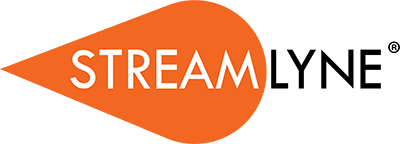
“What is a research administration job?” “What do you do all day?” As a research administrator, how many times do you find yourself being asked these questions? Often, those outside of the research administration community have little understanding about what’s actually involved in the daily work. They know the words “research administration,” and may have a general understanding, but they probably don’t fully comprehend what an RA career entails. They may not even be able to envision the day of a research administrator.
Not to worry – we at Streamlyne are here to help demystify. This way, you will have a link you can share the next time you are asked, “What exactly do you do?” Let’s get into it!
What Do Research Administrators Do?
Research administrators support the development, review, implementation, and management of a sponsored project. They engage in all aspects of sponsored programs administration. This includes everything from preparing and submitting proposals to award negotiation and acceptance through programmatic and financial compliance.
Thousands of people across the globe work in research administration. They spend their days in hospitals, research institutes, and institutions of higher education. They also work for non-profit agencies and in business and industry. And some research administrators work for municipal, state, and federal agencies. Jobs may include only research administration functions or include other job tasks.
Common titles in the profession include:
- Clinical Research Coordinator
- Compliance Officer
- Fiscal Administrator / Officer
- Grant Accountant
- Grant / Contract Manager
- Program or Project Manager / Coordinator
- Proposal Development Coordinator
- Postdoctoral Candidates / Graduate Students / Undergraduate Students
- Research Administrator
- Senior / Research Associate
- Research Education Officer
- Researcher / Investigator
- Sponsored Programs Director
- Subaward / Subcontract Administrator
- Vice President / Provost for Research
Research Administrator Job Roles and Responsibilities
As job titles and locations vary broadly, so do the roles and responsibilities of the research administrator. To ensure the research enterprise remains vibrant and sustainable, it is imperative that everyone understands their roles and works collaboratively and cohesively. Here is a breakdown of common jobs and roles, along with some of the systems and tools used throughout the course of a workday:
Investigator Job Roles and Responsibilities
Research administration begins with the Principal Investigator (aka PI, faculty, investigator, project director). The PI identifies a funding opportunity and writes the project scope of work and other documents required for submission. The PI works in conjunction with unit and central administrators to obtain internal approvals and to check proposal components for agreement with sponsor requirements.
Once awarded, the PI has direct oversight and responsibility for the sponsored program, ensuring award expenditures are compliant with sponsor and awardee regulations. The PI must also oversee any regulated areas such as the use of human and animal subjects in research, compliance with export control regulations, and conflict of interest reporting.
Did you know? The Streamlyne Financial COI module provides a place for researchers to maintain significant financial interests and disclosures and allows for easy reporting to sponsors. This is only available through the Streamlyne Research eRA software.
But PIs are not alone. It takes a project team of knowledgeable staff and sophisticated systems for successful award management.
Project Personnel Roles and Responsibilities
In addition to the PI, there may be any number of individuals who work on a sponsored project, such as co-investigators, undergraduate and graduate students, postdoctoral candidates, and lab technicians. Project personnel should have knowledge of sponsor and awardee policies and procedures and should act accordingly. Project personnel may have to obtain training related to the following areas:
- responsible conduct of research
- the regulatory environment related to research involving humans and animals
- radiation and biosafety requirements
- export controls administration
Did you know? Streamlyne Compliance helps institutions manage IRB, IACUC, and IBC applications and protocols and makes compliance reporting easy. This is only accessible to research programs that have adopted the proprietary Streamlyne Research eRA software.
Unit Research Administrator Job Roles and Responsibilities
Entities receiving a large volume of sponsored awards often employ unit administrators to aid investigators with the minutia of applying for and managing sponsored funds. Some unit administrators work primarily on pre-award activities such as finding funding opportunities or aiding with proposal and budget preparation and submission to the sponsor. Others, such as fiscal officers, support project management by developing spending plans, reviewing monthly expenditures for accuracy and allowability, and anticipating project needs.
Did you know? Streamlyne Research provides useful and innovative tools to help administrators manage awards. Award Report Tracking, a Budget-to-Actuals Report, and a new Post Budget Summary are just a few of the tools designed to streamline award administration. All of these are part of the Streamlyne eRA software reporting tools.
Unit administrators also aid with:
- staffing
- purchasing
- payroll
- effort reporting
- small business subcontract reporting
- regulatory compliance
- progress reporting
Regardless of their individual roles and responsibilities, unit administrators help to support a compliant sponsored programs operation.
Central Research Administrator Job Roles and Responsibilities
In less research-intensive operations, central office staff function as unit administrators, assisting investigators with pre- and post-award functions. In large volume operations, central administrators have more of a compliance role, approving proposals and negotiating awards.
Did you know? Pre-award compliance is made easier with solutions like the Streamlyne Research eRA software. The Streamlyne Research Pre-award module aids administrators with approving and tracking proposals, while the Award module allows for tracking an award from negotiation to closeout.
In addition to approving and submitting proposals and negotiating and accepting awards, central administrators often perform the following duties:
- creating sponsored accounts
- issuing and monitoring sub-agreements
- approving budget reallocations and other award modifications
- communicating with sponsors on matters requiring sponsor approval
Central administrators also perform accounting and financial compliance roles such as preparing and submitting financial reports related to spending.
Did you know? The Streamlyne Research eRA software includes a fully integrated, agile business intelligence tool called Streamlyne Reporting. Users can create reports and graphs and easily share them with others.
No matter where one sits in the sponsored programs operation, having the right systems and tools helps get the job done efficiently and effectively.
Research Administrator Knowledge, Skills, and Abilities
Because research administrator roles and responsibilities are so wide-ranging, administrators come from myriad backgrounds, across diverse disciplines, and with varied skill sets. Until recently, there were no formal education programs for training someone to become a research administrator. Much of the knowledge comes from on-the-job training and collaborative learning opportunities. While job duties and specific qualifications vary, the skills most valued in a research administrator include:
- Strong written and verbal communication skills
- Curiosity and attention to detail
- Ability to interpret and communicate information
- Ability to think independently and make qualified judgments
- Computer literacy
- Strong organizational skills
- Willingness to listen and learn
- Good sense of humor
Research Administration: The Best Job of All
Successful research administration relies on partnerships, effective communication, and a clear understanding of the roles and responsibilities inherent in the various functions needed to support a successful sponsored programs operation. The profession of research administration is dynamic, multi-faceted, and riddled with questions and uncertainties. It provides challenges and opportunities for continuous learning and growth. Most importantly, it imparts a sense of partnership and fulfillment as research administrators support projects that lead to knowledge, discovery, innovations, and the advancement of society.
Research Administration really is the Best Job of All.1
Streamlyne Research
To learn about acquiring the powerful Streamlyne Research eRA for your own institution, please request a customized demo of our eRA software.
Resources
1 Andresen, R. (2016). The Best Job of All. National Council of University Research Administrators. The book was written by Robert (Bob) Andresen, a longtime and fondly remembered research administrator at the University of Wisconsin-Madison, and it inspired our blog post title. The story is about Milo Octopus and his mom on career day. Milo learns that his mom has an important job in research administration, that affects many. The Best Job of All helps children and adults understand the role of the Research Administrator and reminds those of us in the profession of our impact on people and the planet. The Best Job of All is available for purchase from the National Council of University Research Administrators (NCURA) and is available in English, German, Italian, Japanese, Mandarin, and Spanish. To buy a copy, visit the NCURA Store at https://www.ncura.edu/Publications/Store.aspx

